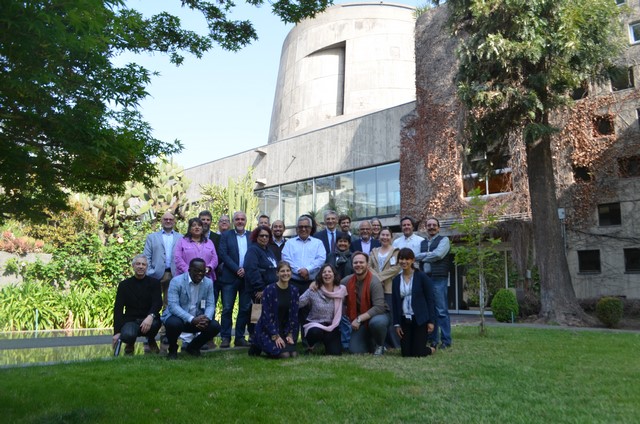Seminar: Latin American & Caribbean perspectives on the post-2020 global biodiversity framework
Work area(s)
Topic(s)
Teaser
The Latin American and Caribbean region is extraordinarily privileged in terms of biodiversity, and LAC countries are among the most active and influential in international biodiversity negotiations. The region has seen many developments in biodiversity and environmental governance in the last decades and has experienced successes but also witnessed how the institutional landscape for biodiversity can remain fragile. The region has therefore much to contribute to debates on post-2020 biodiversity governance.
Event information

Date
24 - 26 Sep 2019, 05:30 - 15:00Event type
Participation
High level biodiversity experts and regional agencies met for three days at ECLAC headquarters to exchange experiences, share best practices, analyze the progress and challenges to a sustainable future in the region and to consolidate a regional strategy in the context of the new global biodiversity framework post-2020.
CONTEXT
A real race against the clock is starting right now, because there is less than two years until COP15, at which an agreement involving 196 parties will have to be found, with a rather high ambition: “The post-2020 global biodiversity framework needs to be commensurate with the challenges of fostering the transformational change required to address biodiversity loss and achieve the 2050 Vision”. There are many topics to address during negotiations to generate the new post-2020 framework, which include the design of the new global targets that will replace the Aichi Targets, the mechanisms that could be used to follow and encourage their implementation, the involvement of non-State actors to raise ambition and increase implementation and resource mobilization and capacity building. Biodiversity think tanks, and more generally knowledge and expertise institutions on biodiversity, have a very important role to play during this phase of discussions. There is indeed a need to share experiences, advances and challenges in biodiversity governance, on how national biodiversity policies have benefited (or not) from international frameworks, and thus reflect, from the point of view of implementation, on what would be needed for the post-2020 framework.
The Latin American and Caribbean region is extraordinarily privileged in terms of biodiversity, and LAC countries are among the most active and influential in international biodiversity negotiations. The region has seen many developments in biodiversity and environmental governance in the last decades and has experienced successes but also witnessed how the institutional landscape for biodiversity can remain fragile. The region has therefore much to contribute to debates on post-2020 biodiversity governance.
Promoting reflection, the exchange of experiences and integrating regional visions is of paramount importance as a contribution to international discussions. Prior to COP21 on climate change, IDDRI and ECLAC collaborated to coordinate a network of LAC experts to produce a series of documents on related policies in the region, which contributed to reinforcing discussions in the region and between the region and the world[1]. We renew our collaboration during 2019-2020 to strengthen the international sustainable governance of biodiversity.
Multimedia
América Latina y el Caribe: una región de extraordinaria biodiversidad y laboratorio para el futuro (English Version)
¿Qué queremos de la COP 15 del Convenio de Diversidad Biológica? (English Version)
Organizing institution
Economic Commission for Latin America and the Caribbean (ECLAC)
- https://www.cepal.org
- 56 222100000
Contact
Marcia Tambutti
- Marcia.Tambutti@cepal.org
- (562) 2210 2344
Viviana Sanhueza
- viviana.sanhueza@cepal.org
- (56-2) 2210-2257